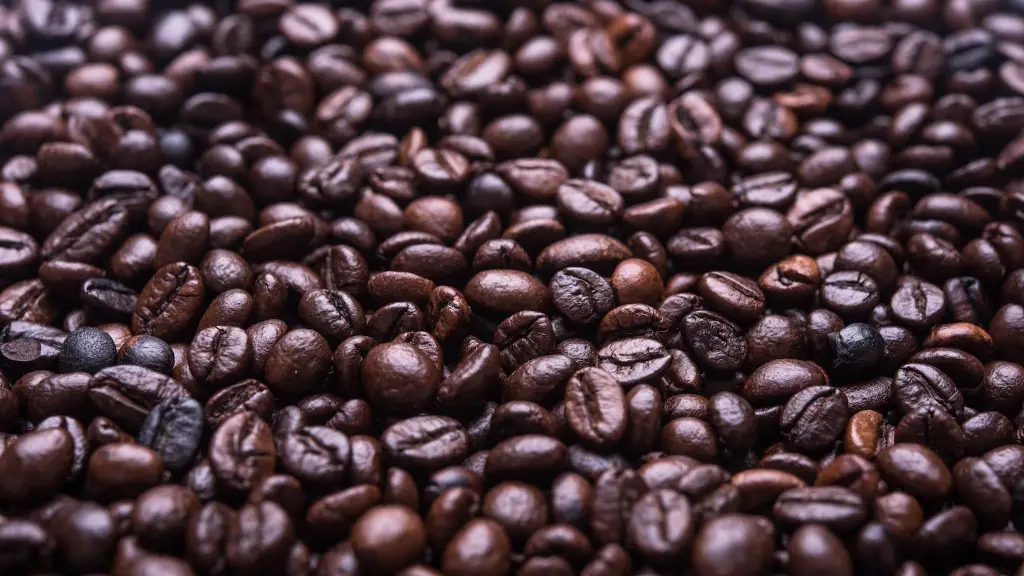What Coffee Should You Drink?
Coffee is one of the most popular drinks in the world, and it carries with it an incredible amount of health benefits. It can help you stay alert, boost your metabolism, improve your mood and focus, and reduce the risk of certain illnesses. On the other hand, some types of coffee can also be unhealthy if you drink too much. So, what’s the best type of coffee for you to drink?
Nutrition and Health Benefits of Coffee
The health benefits of coffee are well-known, but the specific types of coffee you choose can affect the amount and types of vitamins and minerals you get from the beverage. When it comes to the nutritional value of coffee, plain black coffee is the healthiest choice. It contains almost no calories and is loaded with healthy antioxidants that can help reduce inflammation in your body. It also contains some caffeine, which can boost your metabolism and increase your energy.
If you want to increase the nutrients in your coffee, you can add ingredients like milk or cream. Milk or cream can add some beneficial vitamins and minerals to your coffee, like Vitamin D or calcium. Additionally, adding ingredients like cinnamon or nutmeg can add even more nutrition to your coffee. However, be aware that adding too many ingredients can turn a healthy coffee drink into an unhealthy one if they are high in sugar and fat.
Research on the Health Benefits of Coffee
There is a growing body of research to suggest that coffee has many health benefits. Studies have found that coffee may reduce the risk of certain types of cancer, heart disease, and Type 2 diabetes. Additionally, coffee can help improve your mental focus and alertness. It can also help fight fatigue and improve your mood. However, there are some downsides to drinking too much coffee; for example, it can adversely affect your sleep quality and it can also lead to digestive problems.
In summary, coffee is a very healthy drink that can provide many benefits to your body. However, it’s important to choose the right type of coffee and limit your intake in order to achieve the best results.
How Much Should You Drink?
In general, the National Coffee Association recommends a moderate intake of coffee, which is defined as 3-5 cups a day. Therefore, it is important to keep the amount of coffee you consume within a healthy limit. Additionally, if you are pregnant, breastfeeding, or have any health conditions, it is advisable to speak to your doctor before drinking coffee.
Caffeine Content in Different Types of Coffee
The amount of caffeine in different types of coffee can vary greatly. For example, a cup of regular brewed coffee can contain anywhere from 95 to 200 milligrams of caffeine, depending on how it was made. Meanwhile, espresso can contain up to 75 milligrams of caffeine in one shot. It is also important to note that not all coffee is created equal; some brands can contain additives or ingredients that may not be healthy for you, such as sugar and cream.
Organic Versus Non-Organic Coffee
Organic coffee is grown without the use of synthetic chemicals or fertilizers. It is also free from genetically modified organisms or GMOs, making it a healthier choice. Additionally, some studies suggest that organic coffee has more antioxidants than regular coffee. Therefore, if you can afford it, organic coffee may be the best choice in terms of health benefits.
Pros and Cons of Different Types of Coffee
Different types of coffee can have unique benefits and drawbacks. Below is a quick overview of the pros and cons of each type of coffee:
Regular Coffees and Creamers: These are the standard coffees and creamers you can find in most stores. Pros include convenience and accessibility, while drawbacks include the possibility of additives.
Organic Coffees and Creamers: Organic coffees are grown without synthetic chemicals or fertilizers and may have more antioxidants. On the downside, they can be expensive and difficult to find.
Espressos: Espressos can pack in a lot of caffeine in just one serving. Pros include an energy boost and an intense flavor. Cons include the possibility of a stronger caffeine effect.
Relation Between Coffee and Weight Loss
Although the evidence is mixed, some studies suggest that drinking coffee can help with weight loss. This is due to the fact that coffee has the ability to increase your metabolic rate, which can help you burn more calories during exercise. Additionally, some studies also suggest that drinking coffee can suppress your appetite and help you feel fuller for longer. However, it is important to note that any significant weight loss should be achieved through healthy eating and regular exercise, rather than relying exclusively on coffee.
Alternatives to Coffee
If you are looking for an alternative to coffee, there are many other healthy drinks such as tea and herbal infusions. Green tea is a great option as it contains antioxidants that can help reduce inflammation in your body, and some evidence suggests it can also help boost your metabolism. Additionally, herbal infusions are free from caffeine and provide a wide range of health benefits, such as aiding digestion and calming anxiety.
Conclusion
Overall, the type of coffee you drink is up to you. However, it is important to choose the right type of coffee for your health and avoid drinking too much. Pay attention to the ingredients in your coffee and remember that organic coffee may be the healthiest choice. Finally, if you are looking for an alternative to coffee, there are many healthy options available.



